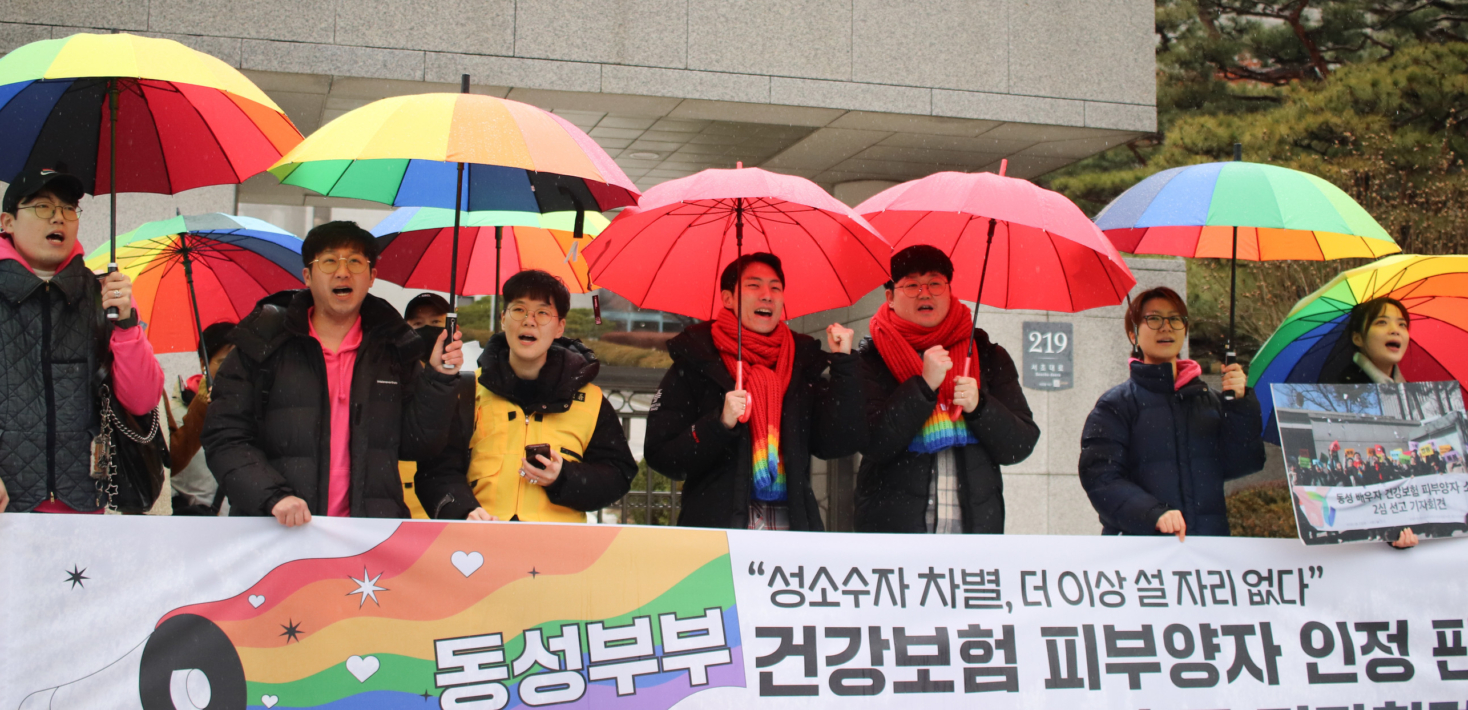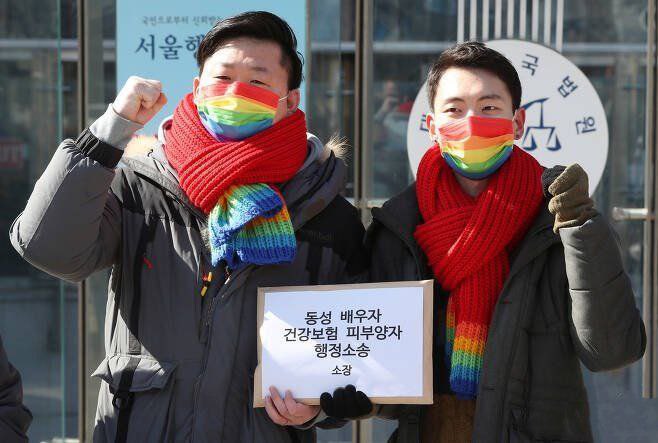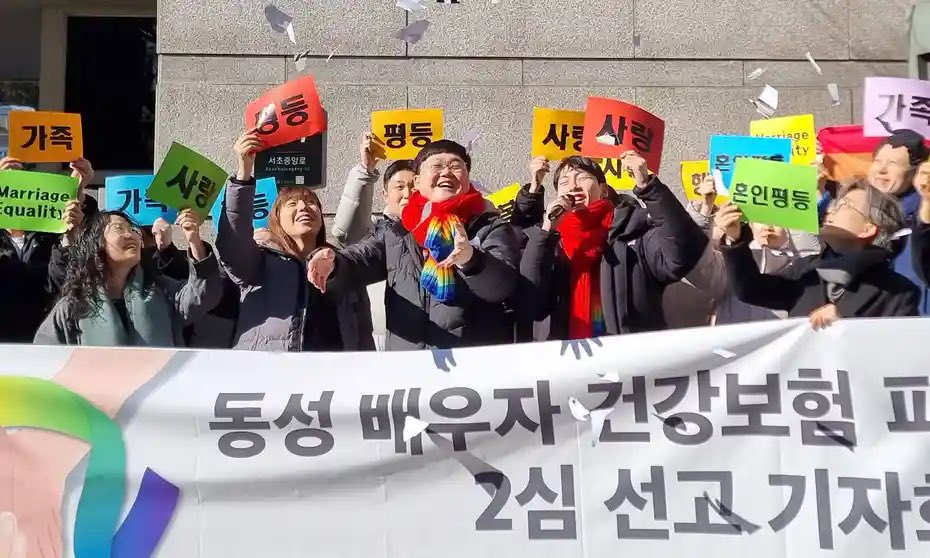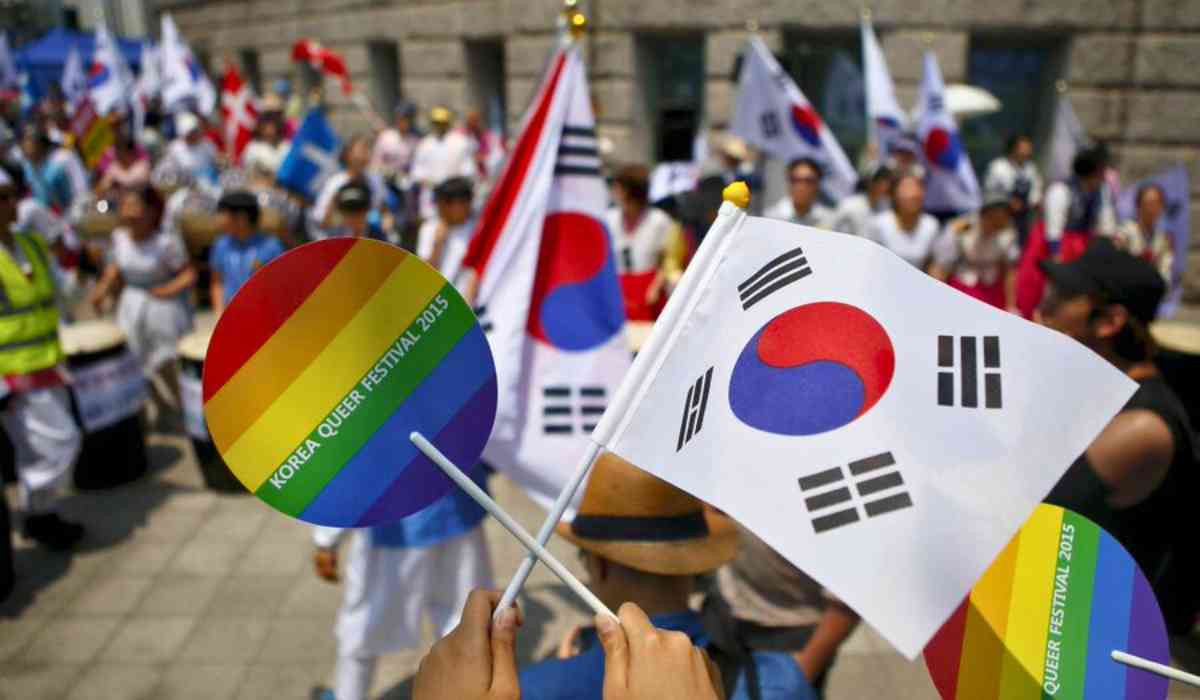The Supreme Court of South Korea rendered a landmark decision allowing same-sex partners to receive state health insurance benefits. Being the first legal acknowledgement of same-sex unions, this ruling is historic for LGBTQ rights in the nation. The decision, which follows a drawn-out legal battle, offers the LGBTQ community hope in a country that has historically lagged behind in recognising LGBTQ rights.
The Case
Background of the Ruling
The landmark ruling by the Supreme Court of South Korea upheld a previous decision by the Seoul High Court. The case involved a gay couple, So Sung-wook and Kim Yong-min, who sued the National Health Insurance Service in 2021 after their spousal benefits were abruptly cancelled. The couple had initially received these benefits when they registered as a married couple, but the National Health Insurance Service later revoked them, stating that same-sex marriages were not legally recognised.

Legal Arguments and Decisions
Court’s Reasoning
The Supreme Court's decision was based on the principle of non-discrimination. Chief Justice Jo Hee-de emphasised that denying health insurance benefits to same-sex couples purely based on their sexual orientation was a form of discrimination. The court's ruling acknowledged the reality of same-sex relationships and recognised the need for equal treatment under the law.
Implications of the Decision
This ruling represents the first time that South Korea has legally recognised same-sex unions, albeit in the context of health insurance benefits. It sets a precedent that could pave the way for further advancements in LGBTQ rights in the country. The decision has been seen as a crucial step towards achieving marriage equality and ensuring that same-sex couples receive the same legal protections and benefits as heterosexual couples.

Reactions
Personal Reactions
Kim Yong-min expressed his immense joy upon hearing the court's decision, stating, "I couldn't believe it when I heard the ruling. I was extremely happy and I started crying." This sentiment was shared by many in the LGBTQ community, who see this ruling as a validation of their relationships and a step towards equality.
Community and Activist Responses
Lawyers and activists have hailed the ruling as a positive development for LGBTQ rights in South Korea. They believe it will help make same-sex couples more visible in the public system and act as a "stepping stone for progress" towards broader recognition of LGBTQ rights, including marriage equality. Activist Horim Yi remarked, "It's going to be a very hopeful ruling for same-sex couples living in South Korea."
South Korea's supreme court upheld a ruling that a same-sex partner was eligible for spousal benefits from state health insurance in a landmark move https://t.co/Gr4uZiyq6i pic.twitter.com/BnL2uUCZEG— Reuters (@Reuters) July 18, 2024
The Bigger Picture
Current State of LGBTQ Rights in South Korea
Despite this landmark ruling, South Korea has generally lagged behind other countries in the region in terms of LGBTQ rights. Same-sex marriage is not legally recognised, and many LGBTQ individuals feel compelled to hide their identity due to societal pressures and discrimination.
Comparative Analysis with Other Nations
In contrast, other nations in the region, such as Taiwan, have made significant strides in recognising LGBTQ rights, including legalising same-sex marriage. The Supreme Court's decision in South Korea is a significant step but highlights the ongoing challenges and the need for continued advocacy and legal reform.
For more LGBTQ+ realted news,click : Mumbai Does Pride - LGBTQIA Pride Parade Returned After A 4 Year Hiatus
Challenges Ahead
Opposition and Resistance
Despite the progress signaled by the Supreme Court's ruling, significant opposition remains. Conservative religious groups, which have a strong influence in South Korean society, continue to resist efforts to promote LGBTQ rights. These groups held protests outside the court and are likely to continue their opposition to any further advancements in LGBTQ legal recognition.

Conclusion
While the Supreme Court's ruling does not legalise same-sex marriage, it is a significant milestone in the fight for equal rights for LGBTQ people in South Korea. It reflects a growing recognition of the rights of same-sex couples and sets a precedent for future legal and social advancements. The ruling is a powerful reminder that progress, though often slow and fraught with challenges, is possible and necessary for a more inclusive and equitable society.
Inputs by Agencies
Image Source: Multiple Agencies
Ⓒ Copyright 2024. All Rights Reserved Powered by Vygr Media.

























